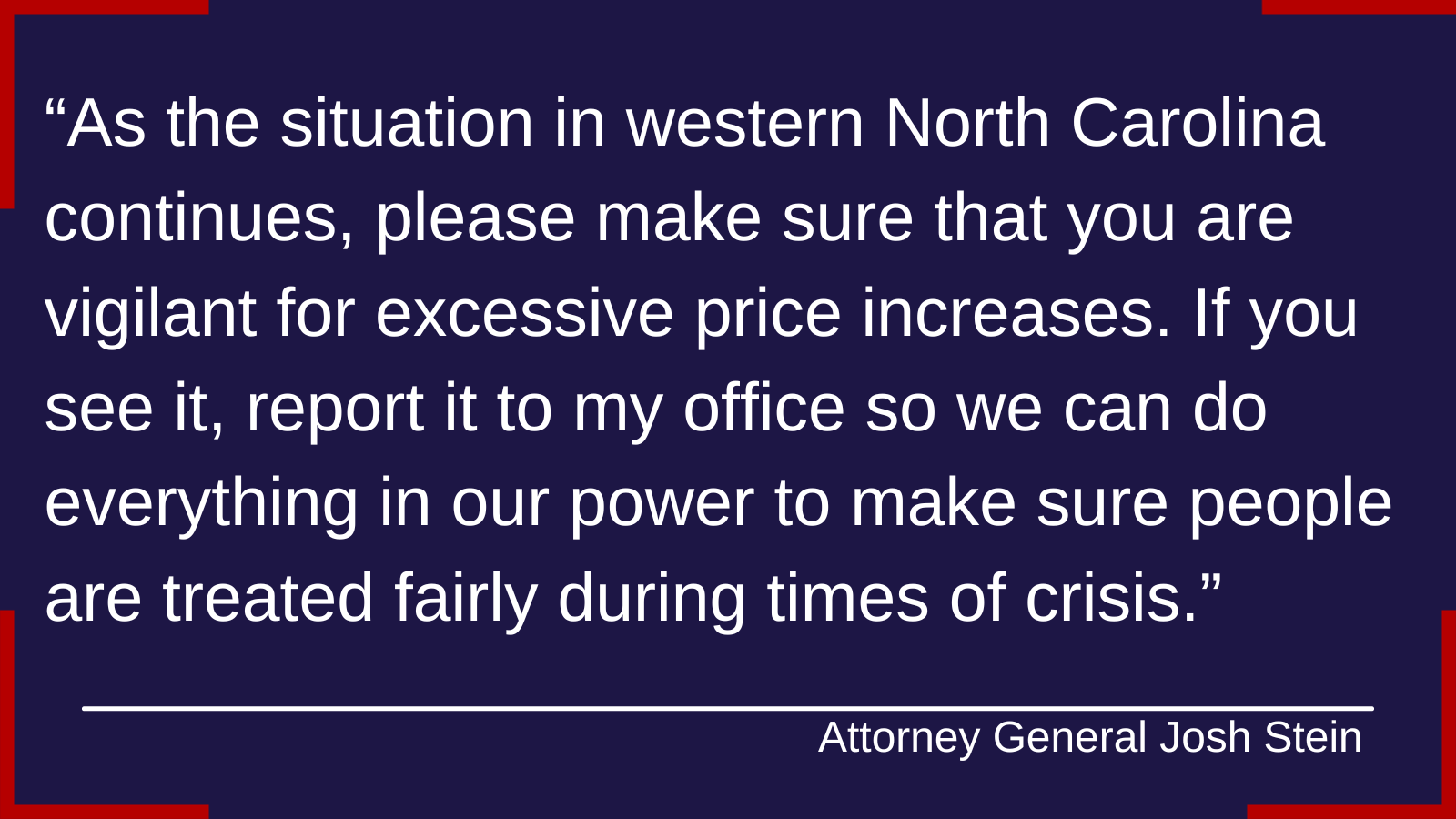
For Immediate Release:
Thursday, November 9, 2023
Contact:
Nazneen Ahmed (919) 716-0060
(RALEIGH) Attorney General Josh Stein today announced that North Carolina’s price gouging law is now being extended to more western North Carolina counties after Governor Roy Cooper declared a State of Emergency. The price gouging ban now includes the following areas: Alexander, Alleghany, Ashe, Avery, Buncombe, Burke, Cabarrus, Caldwell, Catawba, Cherokee, Clay, Cleveland, Gaston, Graham, Haywood, Henderson, Iredell, Jackson, Lincoln, Macon, Madison, McDowell, Mecklenburg, Mitchell, Polk, Rowan, Rutherford, Swain, Transylvania, Union, Watauga, Wilkes, and Yancey counties, as well as Eastern Band of Cherokee Indians tribal lands. If you see potential price gouging, you can report it to our office by calling 1-877-5-NO-SCAM or by filing a complaint at https://ncdoj.gov/pricegouging.
“As the situation in western North Carolina continues, please make sure that you are vigilant for excessive price increases,” said Attorney General Josh Stein. “If you see it, report it to my office so we can do everything in our power to make sure people are treated fairly during times of crisis.”
In North Carolina, the price gouging statute goes into effect when the Governor, the legislature, a county, or a municipality declare a state of emergency. Sometimes, businesses and industries that are heavily affected by the incident that caused the state of emergency have a reasonable need to increase prices in order to resupply, but they should disclose these increases so people can make informed purchasing decisions. Businesses cannot unreasonably raise the price of goods or services to profit from an emergency.
The Department of Justice has enforced North Carolina’s price gouging law in the past and is prepared to take action against any person or business engaging in price gouging.
Since 2018, Attorney General Stein has brought 11 lawsuits against 27 defendants under North Carolina’s price gouging statute. He has obtained 14 judgments or settlements totaling $1,080,000 against 25 defendants, including a $274,000 settlement that was the largest price gouging settlement in the department’s history.
###
